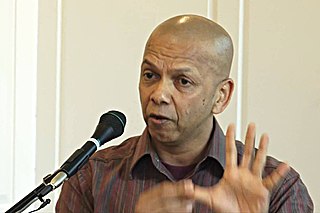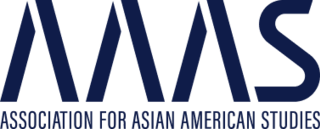The World Conference Against Racism (WCAR) is a series of international events organized by UNESCO to promote struggle against racism ideologies and behaviours. Five conferences have been held so far, in 1978, 1983, 2001, 2009 and 2021. Founded after World War II and the Holocaust as a dependent body of the United Nations, UNESCO started as soon as it was created to promote scientific studies concerning ethnic groups and their diffusion in public opinion to dispel pseudo-scientific rationalizations of racism. One of its first published works was The Race Question in 1950, signed by various internationally renowned scholars.

The IsraelFootball Association is the governing body of football in Israel. It organizes a variety of association football leagues where the highest level is the Israeli Premier League; as well as national cups such as the Israel State Cup, the Toto Cup, and the Israel Super Cup; also, the Israel national football team. The IFA was founded in 1948 as the Palestine Football Association and is based in the Tel Aviv District city of Ramat Gan, Israel. The Association is controversial due to its inclusion of clubs playing in Israeli settlements in the occupied West Bank.

The Anti-Apartheid Movement (AAM) was a British organisation that was at the centre of the international movement opposing the South African apartheid system and supporting South Africa's non-white population who were oppressed by the policies of apartheid. The AAM changed its name to ACTSA: Action for Southern Africa in 1994, when South Africa achieved majority rule through free and fair elections, in which all races could vote.
The 2001 World Conference against Racism (WCAR), also known as Durban I, was held at the Durban International Convention Centre in Durban, South Africa, under UN auspices, from 31 August to 8 September 2001.
The Canadian Arab Federation (CAF) was formed in 1967 to represent the interests of Arab Canadians with respect to the formulation of public policy in Canada. It presently consists of over 40 member organizations.

Farid Esack is a South African Muslim scholar, writer, and political activist known for his opposition to apartheid, his appointment by Nelson Mandela as a gender equity commissioner, and his work for inter-religious dialogue.

The Association for Asian American Studies (AAAS) is a professional organization promoting teaching and research in Asian American studies. Its other goals including advocacy and representation on behalf of Asian-Americans and educating American society about the history of Asian American communities.

Joseph-Achille Mbembe, is a Cameroonian historian and political theorist who is a research professor in history and politics at the Wits Institute for Social and Economy Research at the University of the Witwatersrand. He is well known for his writings on colonialism and its consequences and is a leading figure in new wave French critical theory.
Disinvestment from Israel is a campaign that aims to use disinvestment to pressure the government of Israel to put "an end to the Israeli occupation of Palestinian territories captured during the 1967 military campaign." The disinvestment campaign is related to other economic and political boycotts of Israel.
The Ontario division of the Canadian Union of Public Employees (CUPE) has supported the Boycott, Divestment and Sanctions (BDS) campaign against Israel since 2006. Their stance has encountered opposition from the Canadian Jewish Congress and parts of the press but also widespread support from university professors, Independent Jewish Voices, Palestine House, Canadian Arab Federation and labour unions. In 2009 the CUPE Ontario university workers' committee proposed to extend the campaign to boycott any joint work with Israeli institutions that carry out military research. That resolution became the focus of extensive controversy and was modified in response to pressure from the CUPE national president; the amended version was brought before the CUPE Ontario conference in May 2009 and passed with a 2/3 majority.

Criticism of Israel is a subject of journalistic and scholarly commentary and research within the scope of international relations theory, expressed in terms of political science. Israel has faced international criticism since its establishment in 1948 relating to a variety of issues, many of which are centered around human rights violations in its occupation of the West Bank and the Gaza Strip.

Boycott, Divestment and Sanctions (BDS) is a nonviolent Palestinian-led movement promoting boycotts, divestments, and economic sanctions against Israel. Its objective is to pressure Israel to meet what the BDS movement describes as Israel's obligations under international law, defined as withdrawal from the occupied territories, removal of the separation barrier in the West Bank, full equality for Arab-Palestinian citizens of Israel, and "respecting, protecting, and promoting the rights of Palestinian refugees to return to their homes and properties". The movement is organized and coordinated by the Palestinian BDS National Committee.

Omar Barghouti is a founding committee member of the Palestinian Campaign for the Academic and Cultural Boycott of Israel (PACBI) and a co-founder of the Boycott, Divestment and Sanctions (BDS) movement. He received the Gandhi Peace Award in 2017.

Mona Baker is a professor of translation studies and Director of the Centre for Translation and Intercultural Studies at the University of Manchester in England.

Boycotts of Israel are the refusal and calls to refusal of having commercial or social dealings with Israel in order to influence Israel's practices and policies by means of using economic pressure. The specific objective of Israel boycotts varies; the Boycott, Divestment and Sanctions (BDS) movement calls for boycotts of Israel "until it meets its obligations under international law", and the purpose of the Arab League's boycott of Israel was to prevent Arab states and others from contributing to Israel's economy. Israeli officials have characterized the BDS movement as antisemitic.
The current campaign for an academic boycott of Israel was launched in April 2004 by the Palestinian Campaign for the Academic and Cultural Boycott of Israel (PACBI) as part of the Boycott, Divestment and Sanctions (BDS) campaign. The campaign calls for BDS activities against Israel to put international pressure on Israel, in this case against Israeli academic institutions, all of which are said by PACBI to be implicated in the perpetuation of Israeli occupation, in order to achieve BDS goals. Since then, proposals for academic boycotts of particular Israeli universities and academics have been made by academics and organisations in Palestine, the United States, the United Kingdom, and other countries. The goal of the proposed academic boycotts is to isolate Israel in order to force a change in Israel's policies towards the Palestinians, which proponents argue are discriminatory and oppressive, including oppressing the academic freedom of Palestinians.

Cultural racism is a concept that has been applied to prejudices and discrimination based on cultural differences between ethnic or racial groups. This includes the idea that some cultures are superior to others or in more extreme cases that various cultures are fundamentally incompatible and should not co-exist in the same society or state. In this it differs from biological or scientific racism, which refers to prejudices and discrimination rooted in perceived biological differences between ethnic or racial groups.

Reactions to Boycott, Divestment and Sanctions (BDS) refer to the views of international actors on the BDS movement.
The American Studies Association (ASA) began an ongoing boycott of Israeli educational institutions in December 2013. The ASA's decision to boycott was controversial because it was the first major American scholarly organization to do so. In April 2016, four ASA members aided by the pro-Israeli Brandeis Center sued the ASA, but the lawsuit was dismissed in 2019 when the judge ruled that plaintiffs lacked standing.

Academic Freedom and Apartheid: The Story of the World Archaeological Congress by Peter Ucko is a personal account of the 1986 World Archaeological Congress (WAC), originally intended to be the eleventh congress of the International Union for Prehistoric and Protohistoric Sciences (IUPPS). Ucko, who organised the Congress, presents a linear account of how the Congress came to ban participation by South Africans and Namibians as part of the Academic boycott of South Africa, and how this led to it splitting from the IUPPS. It quotes extensively from sources such as correspondence, minutes, newspapers, WAC publicity, and others' accounts of the WAC.














